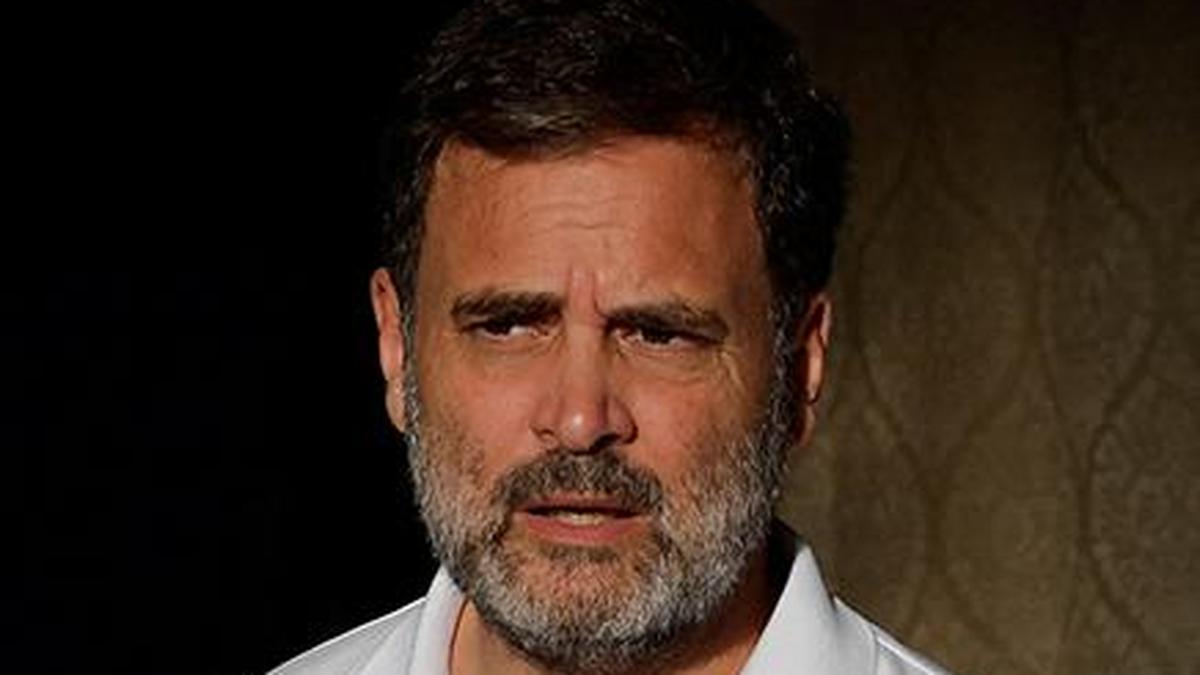 |
|
The death of former Indian Prime Minister Dr. Manmohan Singh has sparked a heated political exchange between the ruling Bharatiya Janata Party (BJP) and the opposition Congress party. The BJP, in a sharp critique, leveled accusations against Congress leader Rahul Gandhi, alleging that he exploited Dr. Singh's passing for political gain. This accusation stems from Gandhi's decision to travel to Vietnam to celebrate the New Year while India was observing a period of national mourning for the former Prime Minister. BJP IT cell head Amit Malviya, in a post on X (formerly Twitter), directly condemned Gandhi's actions, describing them as a cynical attempt to capitalize on a moment of national solemnity. Malviya's statement went beyond the immediate criticism of Gandhi's timing, venturing into accusations of broader contempt towards Dr. Singh and the Sikh community, referencing historical events to further amplify his claims. This escalation broadened the scope of the conflict beyond the immediate political response to Gandhi's travel plans. The strongly worded accusations, accusing Gandhi and Congress of exploiting the situation for political maneuvering, painted a picture of deep political division and mistrust. The accusations further suggest a deeper, long-standing antagonism between the two major political entities in India.
The Congress party swiftly retaliated against the BJP's accusations. Congress leader Manickam Tagore, in a post on X, accused the BJP of engaging in "diversion tactics," suggesting that the criticism of Gandhi's trip serves as a distraction from other issues. Tagore's counter-accusations focused on the BJP's treatment of Dr. Singh's family following his death, claiming that the government's actions were "shameful." This counter-narrative highlighted the perceived insensitivity of the BJP's handling of the situation, framing the BJP's criticism of Gandhi as hypocritical and politically motivated. The counter-accusations framed the argument around a broader political strategy of the BJP to deflect attention from their own actions and failures. The argument shifted the focus of the controversy from Gandhi's holiday to encompass the entirety of the political climate surrounding Dr. Singh's passing and beyond. This strategic counter-offensive attempts to neutralize the BJP's attacks and reshape the narrative into one of larger political machinations.
The exchange between the BJP and the Congress highlights the deeply polarized political landscape in India. The accusations and counter-accusations reveal not only a disagreement over the appropriateness of Gandhi's actions but also a fundamental clash in political ideologies and approaches. The timing of Gandhi's trip, occurring during a period of national mourning, is a key element in the controversy. The differing interpretations of the situation illustrate the complex dynamics within Indian politics, where events are often viewed through partisan lenses. This incident exemplifies the use of social media platforms like X in disseminating political messages, amplifying the reach and impact of the accusations and counter-accusations. Both parties utilized these platforms effectively to reach a broader audience, thereby contributing to the amplification and escalation of the controversy. The intense and public nature of this political sparring serves as a stark illustration of the often volatile nature of India's political discourse.
Beyond the immediate political fallout, the controversy surrounding Gandhi's trip reveals a broader pattern of political maneuvering and point-scoring in India. The incident highlights the tendency of political parties to leverage significant events for partisan advantage, often resorting to accusatory language to discredit their opponents. The strategic use of social media to disseminate and amplify these accusations further exacerbates the situation, creating a highly charged atmosphere where reasoned dialogue often gives way to outright attacks and counter-attacks. Analyzing the language used by both sides reveals distinct rhetorical strategies aimed at mobilizing support within their respective bases and discrediting the opposing party. The choice of words and the manner of presentation are carefully crafted to maximize political impact, resulting in a dynamic characterized by escalating tensions and accusations rather than productive discussion or reconciliation. The lack of substantial evidence presented by either side highlights the highly charged political climate where accusations often serve as the primary mode of engagement.
The long-term consequences of this exchange are difficult to predict but the incident serves as a significant example of the contentious relationship between the BJP and Congress. The ongoing tensions demonstrate the intensity of political rivalries and the extent to which political actors are willing to exploit sensitive events for political purposes. The use of loaded language and historical references underscores the deep-seated divisions within Indian politics. The episode underscores the need for a more respectful and measured approach to political discourse. The incident ultimately raises questions about the ethics of political conduct and the role of social media in fueling political conflict. The enduring impact of such events goes beyond the immediate political fallout, shaping public perception and influencing the overall political climate in India. The controversy serves as a case study of political communication, strategizing, and the challenges of maintaining a respectful and constructive public discourse amidst strong partisan divisions.
Source: Rahul Gandhi exploited Manmohan Singh’s death for his expedient politics: BJP
